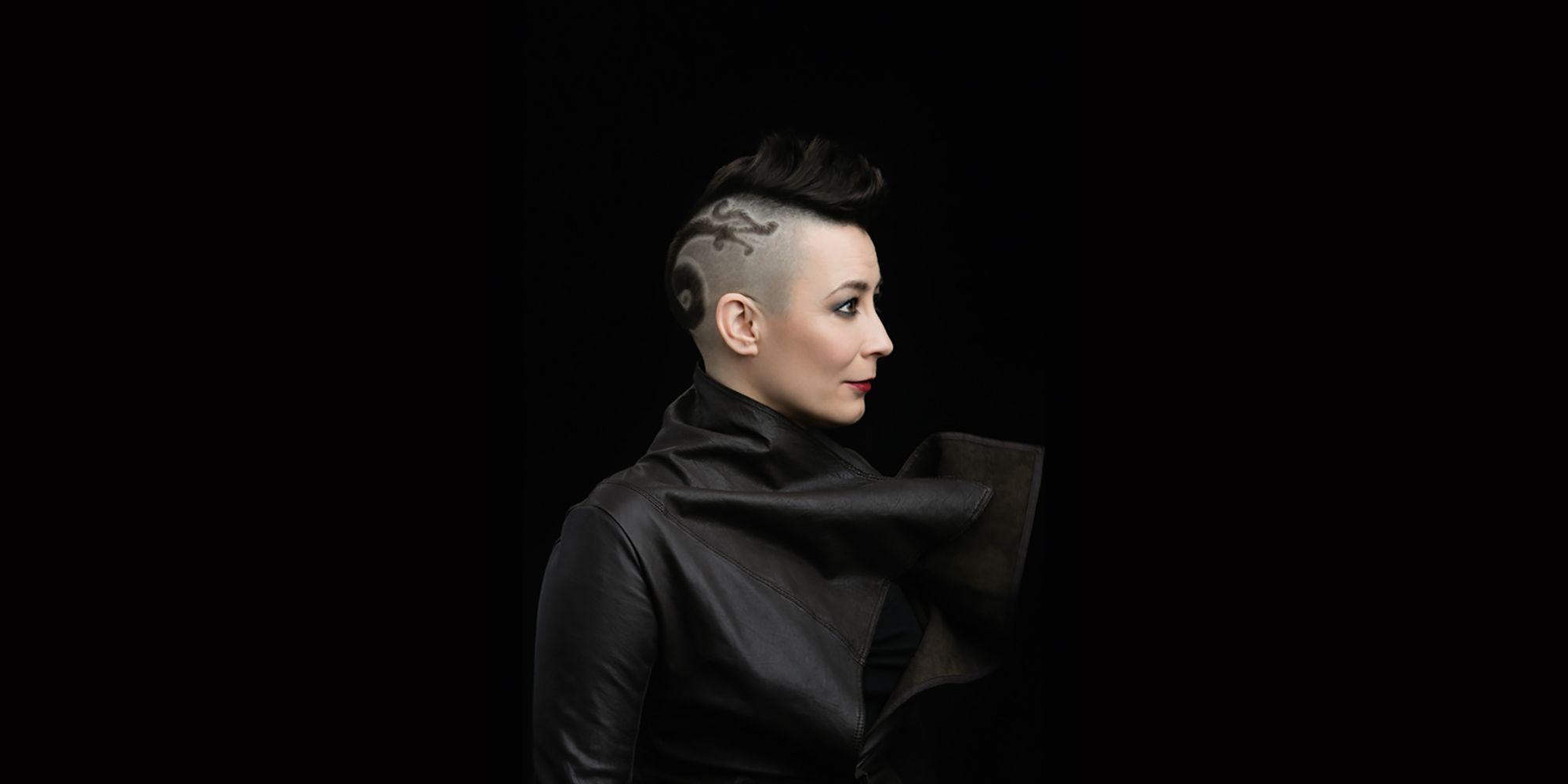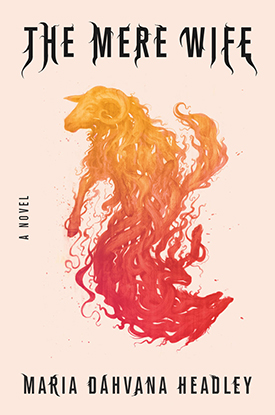The history of storytelling has always been one of shouting around a fire, and of the loudest voices retaining control of the larger narrative. This, of course, means certain things in patriarchal society. Stories about cis-gendered men and about whiteness and straightness as an unchallenged formula for goodness are, in the history of Western literature and myth, the aggravating equivalent of paper. They’ve a long history of being the slate on which all other stories are forced and/or assumed to be written—sometimes literally. Monsters in the margins, journals of slaves in the endpapers of books by invaders, chemistry categorized as romantic fantasy, rapture categorized as rant, poetry categorized as inchoate confession.
Between the lines of nearly every canonical chunk of Western mythmaking, though, be it medical innovation or political biography, gods and girls, saints and strangers, there are fragments written in invisible and redacted ink, one line mentions of medical subjects, nameless women, those without birthdates, murdered ghosts haunting the history. It is in the interest of passive, hierarchical society to keep those voices both silent and outside the light.
Shouted stories, after all, are as useful for controlling society as for inspiring it, as easily used to convince groups of people that they are meant to follow as they are to convince them that they might lead. The project, at this point in the history of the world, is to create storytelling that provokes readers and listeners out of complacency and into revolution. One of the ways to do that is to present the outlines of a deeply known and accepted story, and then full-throatedly fuck it up.
The project, at this point in the history of the world, is to create storytelling that provokes readers and listeners out of complacency and into revolution.
In the conventional retelling of the loudest shouts—the rhymes, the riddles, the expeditions and quests, the journeys of heroes and vanquishing of monsters—even stories about complicated protagonists shift and simplify over centuries and translations, emphasizing binaries and regulating the ambition of listeners. The purpose of telling hero stories, after all, has often been to preserve the hierarchical status quo, whether we’re talking about gods invented by Roman propagandists to persuade an unwilling Egypt of an emperor’s Hades-road-style good intentions, or Captain America’s original unquestionable Good Man narrative of American dominance over Everyone Else.
At the moment, The Ballad of Donald Trump has become, for many, a canonical text of a trickster hero’s rise to literal world dominance. His ballad is sung in tweets and headlines, in characters crafted into fantastical kennings, and in verses with sing-a-long cadences—in short, the hero stories of Donald Trump are the sorts of stories that have, for thousands of years, traveled in the memories of bards, and been filtered easily into society through them. They are the kinds of pop songs that evade lyrical analysis, that rise out of even the consciousness of those who’ve lost all other memory. In the tradition of hero tales, The Saga of the Donald is an effective one, and one riddled with the genre elements that travel through centuries of this style of epic. Monsters, Witches, Bitches, Beautiful Wives and Good Men. The challenge in counterbalancing narratives such as his, is that if one’s project is to rearrange the balance of good and evil, one must unearth and articulate new heroes in ballads where descriptions of monsters have already been written, accepted, and memorized.
In my own career as an author of all kinds of fantastical fiction, both for teenagers and adults, it has been useful to imagine a forest with a loud-voiced bard telling a tale of an important man to an audience of that bard’s peers. I listen for a while, long enough to memorize the verses, and then I walk into the woods, away from the firelight, away from the drinking and singing. Out there in the trees, is the rest of the story.
The voices coming from out of the dark are the ones I’m most interested in as a writer, as a reader, and lately as a translator.
The voices coming from out of the dark are the ones I’m most interested in as a writer, as a reader, and lately as a translator. I’ve spent much of my career working both at finding texts and stories that haven’t been amplified and retold, and at prying open the stories we know very well to reveal the points of view that have not been explored. In short, the reason I write the kinds of books I write is that I am interested in voices that’ve been re-categorized from human into monstrous. This, of course, often means that I’m interested in telling the stories of women’s lives in worlds controlled by men, and in writing their rebellion. Also, given the nature of monsterization in many canonical texts, I spend a lot of time analyzing the reasons characters might be depicted as monsters, reduced to spirits, and shifted from warriors into witches. The reasons nearly always come down to power.
Three years ago, I wrote the first draft of The Mere Wife, an adaptation of Beowulf in which the titular character is a police officer, and Grendel’s mother is an injured war veteran, trapped with her son in a cave overlooking Herot Hall, a gated community inhabited by a gentrifying army of the wealthy. In my version of Beowulf, Grendel’s mother and Hrothgar’s wife tell the tale. They both have names and histories of their own. In the original Beowulf, Grendel, Grendel’s mother, and Beowulf are described with the same word, which has usually been translated as, respectively, hero, monster, and hag. In actuality, the word probably means fierce fighter, or warrior, and does not have implications of the supernatural. It’s my feeling that Beowulf is actually a story about land seizure, authoritarian violence in defiance of law—Grendel’s mother, for example, must be categorized as an inhuman monster to avoid the implication that Beowulf, in murdering her, is denying her the human and legal Anglo-Saxon right to proper vengeance for the death of her son. If this woman is a monster, she has no human rights, and Beowulf, in murdering her, can be categorized not as a monster, but as a hero. One is allowed to kill an animal.
A reverberating translation error has left us with a story quite different from the original complicated version, and as listeners and readers we’ve been denied the meat of a much more interesting story than one about an uncomplicated hero and three encounters with evil monsters. Not only have we been denied this story, we’ve been denied, societally, the story of a brave and loyal woman warrior, as well as the story of a man who is seen as a hero by other men, but to himself is a knowing lawbreaker.
These stories would be useful to our understanding of the world, and revisions to them—or rather, clarifications upon them, re-translations, restorations—are a path toward shifting the larger culture.
It is worth imagining now, at this moment in America, that band around a fire, one man telling the story of a hero for the rest to repeat. The firelight is their safety and the circle of story—of this story, one narrowed into a simple version of good versus evil, and Us versus Other—is a circle boundaried in the purposeful unknown. To the ones in the center of that circle, the forest is full of monsters. But outside the place where the fire has burnt away the green, there are thousands of things living, changing, shifting, growing. The whole forest is out there, already written, just waiting to be spoken, shared and amplified.
The whole forest is out there, already written, just waiting to be spoken, shared and amplified.
It is worth imagining a version in which the stories spoken from outside the traditional circle are the stories we are listening to, and continue to listen to, to develop, to unearth, to translate from the texts they are already hidden inside.
It’s worth imagining it, and then, as is also in line with the history of changing the world with imagined wonders as well as with imagined monsters, it is worth sitting down at your desk and actually creating it.
Sing these stories like they are unanalyzed pop songs. Call out the kennings and shout the silenced. Seize back the history of science and certainty, of centuries of those who spoke but whose words were not permitted to echo. Sing them, and share them, and insist upon their capacity to change the world into one more worthy and complicated, more blistering and bright, more real even as the unreal is the tool for getting there.
Next spring, Maria will carry on what’s becoming something of an FSG tradition with a new translation of the classic Beowulf, presenting the story from a fresh, feminist angle wholly absent from our seminal Seamus Heaney translation of the classic.
Maria Dahvana Headley is a #1 New York Times-bestselling author & editor. Her books include the novels Magonia, Aerie, Queen of Kings, and the memoir The Year of Yes. With Kat Howard she is the author of The End of the Sentence, and with Neil Gaiman, she is co-editor of Unnatural Creatures. Her short stories have been shortlisted for the Shirley Jackson, Nebula, and World Fantasy Awards, and her work has been supported by the MacDowell Colony and by Arte Studio Ginestrelle, where the first draft of this book was written. She was raised with a wolf and a pack of sled dogs in the high desert of rural Idaho, and now lives in Brooklyn.

